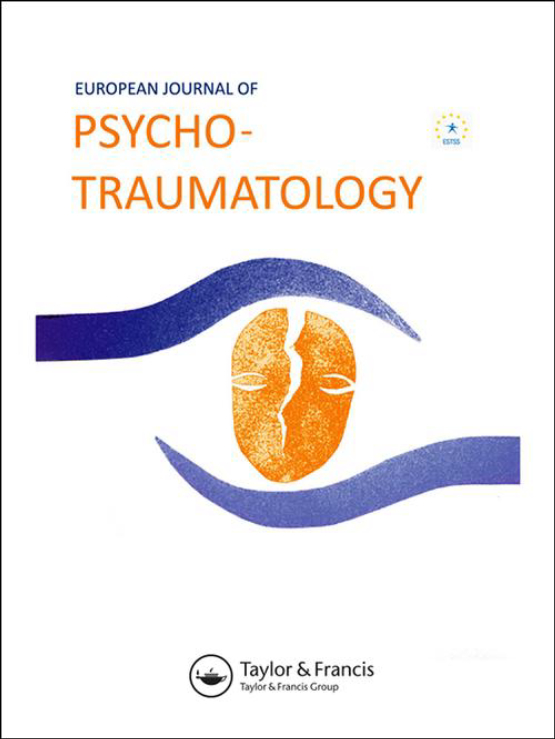Submit a Manuscript to the Journal
European Journal of Psychotraumatology
For an Article Collection on
Advances in Psychotherapy
Manuscript deadline
02 September 2024


Article collection guest advisor(s)
Dr Catrin Lewis,
Cardiff University
[email protected]
Advances in Psychotherapy
A robust and growing body of evidence supports the efficacy of several forms of psychotherapy for the treatment of PTSD. Trauma focused psychotherapies such as cognitive behavioural therapy with a trauma focus (CBT-TF) and eye movement desensitisation and reprocessing (EMDR) have the strongest evidence of effect and these are consistently recommended internationally by clinical practice guidelines. Many other psychotherapies have shown great promise and have an emerging evidence base.
Despite the wealth of evidence for various forms of psychotherapy for PTSD, attaining consistent positive outcomes remains a significant challenge. Treatment response varies greatly among individuals, often leaving residual symptoms. Moreover, the heterogeneous nature of PTSD underscores the necessity for a range of evidence-based treatment modalities that can be customised to meet the unique needs and preferences of each patient. Additionally, the limited accessibility of evidence-based therapies is a concern. To overcome these challenge, additional research is needed to inform the refinement of existing interventions and pioneer innovative alternatives. This is essential to ensure optimal efficacy, acceptability, and accessibility of psychotherapy for adults and children affected by PTSD.
We warmly welcome all types of articles that align with the theme of Advancing Psychotherapy, including review articles and meta-analyses. Specifically, we encourage studies that aim to:
- Evaluate interventions for the prevention or treatment of PTSD that are novel or have an emerging evidence base.
- Utilise innovative technology or artificial intelligence (AI).
- Identify prognostic and predictive factors to aid in determining the optimal choice of PTSD treatment.
- Explore acceptability and patient preferences regarding treatment options.
- Investigate strategies for enhancing the outcomes of effective therapies within specific populations, such as military veterans.
- Evaluate the potential of pharmacological agents (e.g., MDMA) to augment psychotherapy.
- Assess existing treatments for individuals with complex PTSD or explore opportunities for modification or the development of new therapies.
- Explore methods for implementing effective psychotherapies.
- Investigate the application of evidence-based interventions in low- and middle-income countries (LMICs).
- Explore strategies for effectively disseminating evidence-based interventions on a global scale.
Dr Catrin Lewis is a Research Psychologist based at Cardiff University in Wales, UK. Working within the Intervention Development workstream of the National Centre for Mental Health (NCMH) she has extensive experience of working alongside experts by lived experience to develop novel psychological interventions using mixed method approaches. Dr Lewis is one of the originators of Spring, a novel guided internet-based programme for PTSD which is now being used in the UK National Health Service (NHS). She is currently working on the development of similar interventions for Prolonged Grief Disorder, Complex PTSD, and a bespoke version of Spring for military veterans. Dr Lewis has conducted several Cochrane reviews related to psychotherapy for PTSD and worked with the National Institute for Health and Care Excellence (NICE) and the International Society for Traumatic Stress Studies (ISTSS) to produce clinical practice guidelines.
Benefits of publishing open access within Taylor & Francis
Global marketing and publicity, ensuring your research reaches the people you want it to.
Article Collections bring together the latest research on hot topics from influential researchers across the globe.
Rigorous peer review for every open access article.
Rapid online publication allowing you to share your work quickly.
Looking to Publish your Research?
Find out how to publish your research open access with Taylor & Francis Group.
Choose open accessSubmission Instructions
All manuscripts submitted to this Article Collection will undergo desk assessment and peer-review as part of our standard editorial process. Guest Advisors for this collection will not be involved in peer-reviewing manuscripts unless they are an existing member of the Editorial Board. Please review the journal Aims and Scope and author submission instructions prior to submitting a manuscript.